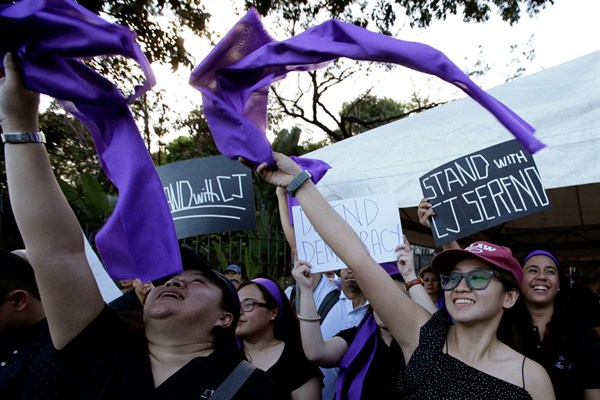Over the past three decades, since the end of the era of dictator Ferdinand Marcos, the Philippines has often combined corrupt and semi-authoritarian electoral politics with strong cultural and institutional checks on its elected leaders. Among the most powerful checks have been the Philippines’ vibrant media and highly active civil society, including NGOs, unions and other actors. The Catholic Church, at times, has pushed back against politicians’ graft and amassing of power.
This active civil society, sometimes buttressed by a judiciary asserting its independence, has been essential to keeping the Philippines from deteriorating democratically, including in the 2000s when it weathered several weak and allegedly corrupt presidents. Since the election of Rodrigo Duterte, a populist firebrand, as president two years ago, many Filipinos who worried about Duterte’s potential to act autocratically looked to journalists, judges and the rest of civil society to be even more important firewalls than ever.
So far, however, these institutions have had only a minimal impact on Duterte and his demagogic tendencies. The Catholic Church continues to criticize Duterte’s brutal, extrajudicial war on drugs, but it is unclear whether it has the power to sway Philippine society like it did in the past. Duterte’s administration has co-opted several prominent civil society figures, such as Harry Roque, who was previously one of the country’s foremost human rights activists and is now Duterte’s spokesperson. In other cases, Duterte has used his bully pulpit to personally threaten activists, on top of a declaration of martial law on the southern island of Mindanao last year that hampered civil society there.

